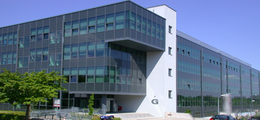Improvements in technologies and experimental methods of recent years have led to steadily increasing amounts of data, whether resulting from high-throughput next-generation sequencing methods in the field of genomics, high-density gene chips in transcriptomics, or highly accurate mass spectrometers in proteomics or metabolomics. Polyomics research highly demands bioinformatics support concerning data management, efficient data analysis, and user-friendly software applications.
At the Center for Biotechnology (CeBiTec), the Bioinformatics Resource Facility (BRF) as part of the Technology Platform Bioinformatics can look back on many years of experience in the computational processing and analysis of genomics and post-genomic datasets. In the frame of several national and international-projects, the BRF served as a central bioinformatics service provider for collaboration partners, offering comprehensive infrastructure for data storage and data analysis. For this purpose, a variety of bioinformatics tools and software applications - ranging from functional genome analysis and metagenomics to transcriptomics, proteomics, and metabolomics - have been developed and are provided to the community. In the field of functional genome analysis GenDB was being developed for the annotation and maintenance of genomes (Meyer et al., 2003). Microarray-based transcriptome analysis is targeted with EMMA as a platform for the processing of these datasets (Dondrup et al., 2009). QuPE has been designed as a rich internet application for the analysis of quantitative proteomics data particularly from stable-isotope labeling approaches (Albaum et al., 2009). MeltDB features the analysis and integration of data from metabolome experiments (Neuweger et al., 2008). The web-based software ProMeTra (Neuweger et al., 2009) allows to combine datasets from the aforementioned functional genomics applications and to visualize their results on user defined metabolic pathway maps.



